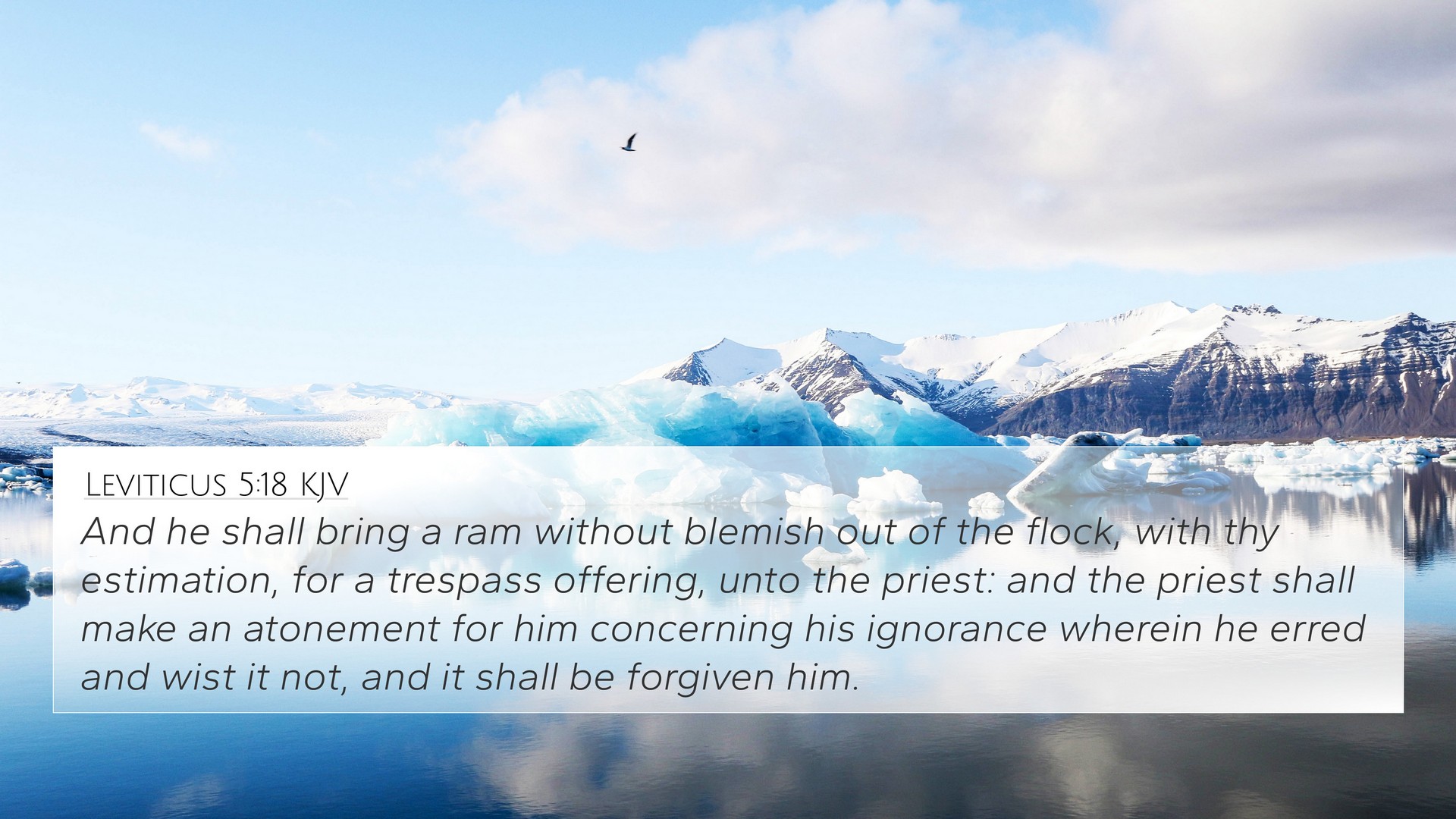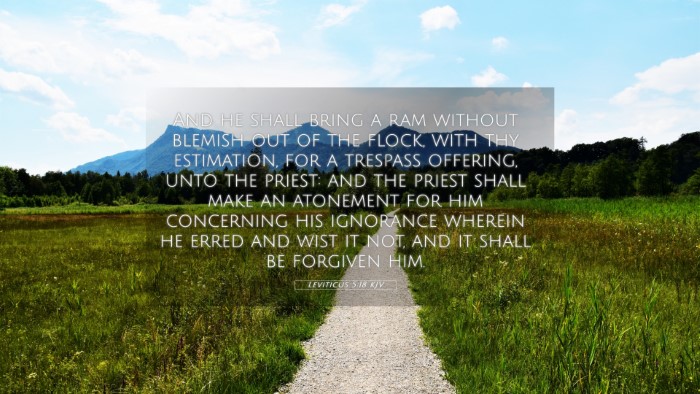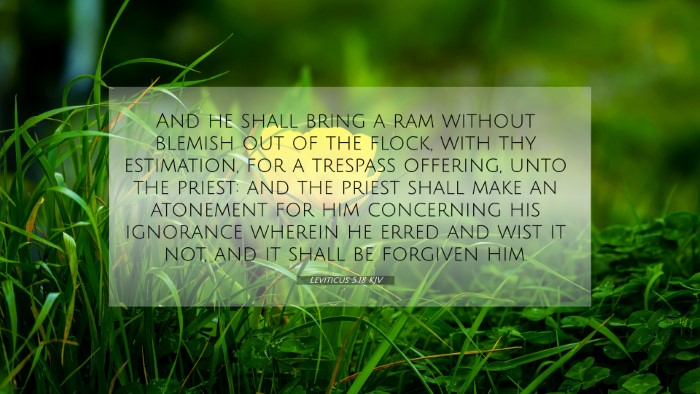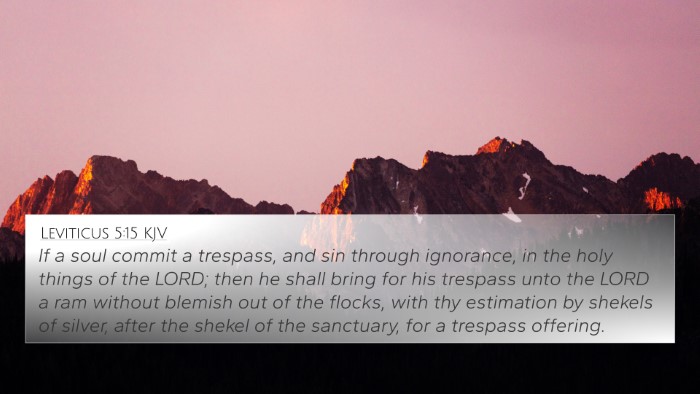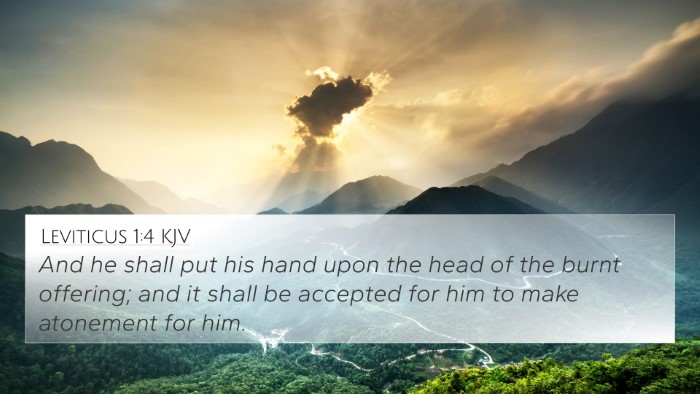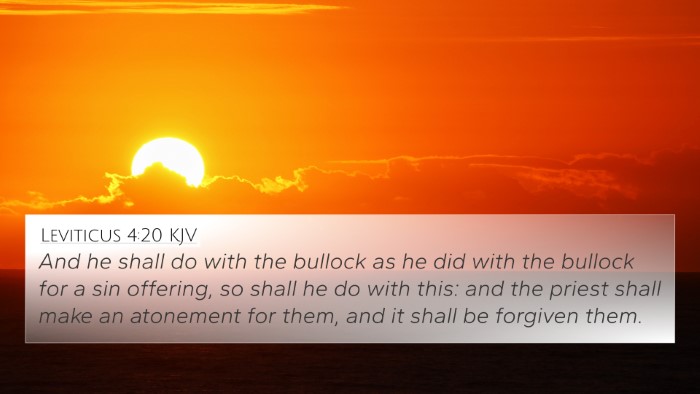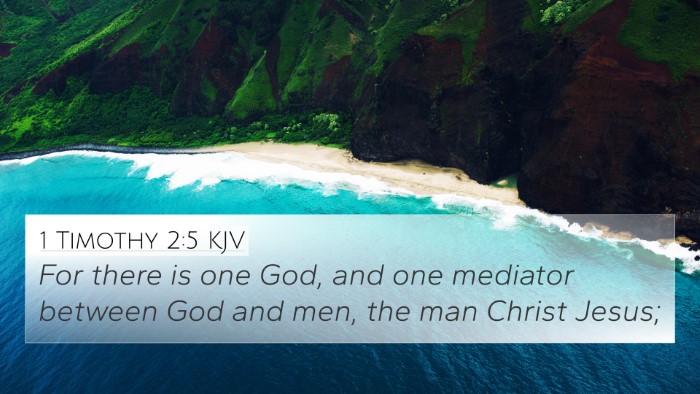Understanding Leviticus 5:18
Leviticus 5:18 states: "And he shall bring a ram without blemish out of the flock, with thy estimation, for a trespass offering, unto the priest: and the priest shall make an atonement for him concerning his ignorance wherein he erred and knew it not, and it shall be forgiven him."
Summary of Verse Meaning
This verse is part of the Mosaic Law, which outlines the procedures for offerings and sacrifices in ancient Israel. The primary focus of this verse is on the sin offering for unintentional sins, emphasizing God's provision for forgiveness even in cases of ignorance.
Commentary Insights
Matthew Henry's Commentary:
Henry emphasizes the significance of atonement in the context of sin, particularly unintentional sins. He discusses how God’s law not only sets boundaries for behavior but also provides grace in instances where one falls short unknowingly. The choice of a ram emphasizes the need for a valuable offering to signify the seriousness of the trespass.
Albert Barnes' Notes:
Barnes notes that the ram is a symbol of sacrificial purity, pointing to a future ultimate sacrifice. He provides insights into the communal aspect of sin and atonement, highlighting that even unknowingly harming one's neighbor requires restitution for restoring social and spiritual relationships.
Adam Clarke's Commentary:
Clarke elaborates on the procedural aspects of the offering, underlining that the sin offering was vital to maintaining the covenant relationship between Israel and God. He explains that understanding one's transgressions, even if unintentional, leads to a deeper awareness of God's holiness and the necessity of confession and sacrifice.
Bible Cross-References
The following verses connect and expand on the themes presented in Leviticus 5:18:
- Numbers 15:27-29: Discusses offerings for unintentional sins.
- 1 John 1:9: Assures believers of forgiveness upon confession, aligning with the themes of atonement.
- Psalms 19:12: Reflects on the need for revelation of hidden faults.
- Romans 7:7: Paul speaks about sin and the law, which connects to understanding wrongdoing.
- Hebrews 9:22: Highlights the necessity of blood for forgiveness, linking to sacrificial themes.
- Matthew 5:23-24: Stresses the importance of reconciliation, echoing the themes of social as well as spiritual atonement.
- Ephesians 4:32: Calls for forgiveness among believers, resonating with the communal aspect of sin and atonement.
Thematic Connections
Understanding Leviticus 5:18 provides rich thematic connections across the Bible:
- Forgiveness and Atonement: Many verses throughout the Bible speak to the need for atonement, especially in the context of unintentional acts.
- The Role of Sacrifice: The concept of sacrificial offerings is woven throughout both the Old and New Testaments, culminating in the ultimate sacrifice of Christ.
- Human Fallibility: The idea that humans can sin unknowingly is echoed in various scripture passages, emphasizing the need for a savior.
Cross-Referencing Biblical Texts
Cross-referencing allows us to explore the deeper meanings and connections between different scriptures, providing profound insights into God's intent and human obligation. Tools for effective Bible cross-referencing include:
- Bible Concordance: Helps locate verses and themes across the Bible.
- Bible Cross-Reference Guides: Offer structured ways to find related verses.
- Bible Chain References: Track themes through interconnected verses systematically.
- Comparative Bible Study: Engage in parallel analysis for enriching understanding.
Conclusion
Leviticus 5:18 reflects profound truths about God's desire for atonement and forgiveness. The structured approach to addressing sin, even when unintentional, highlights an essential aspect of our relationship with God and with one another. By engaging in cross-referencing and comparative analysis, one can develop a more nuanced understanding of biblical texts and their interconnectedness, deepening one's spiritual journey.
